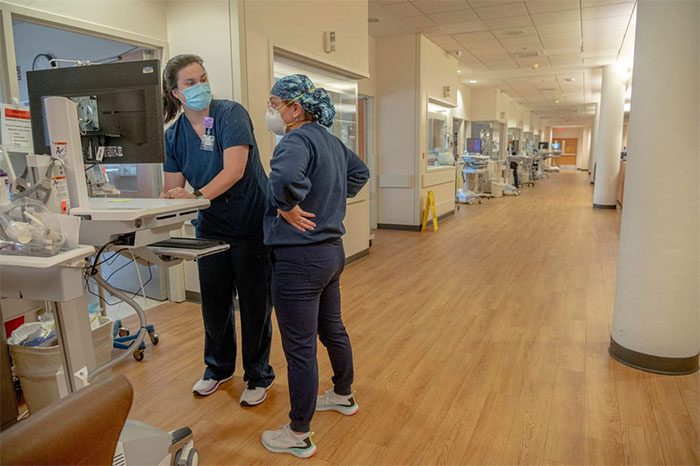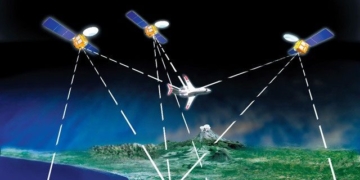Artificial Intelligence (AI) can detect breast cancer through mammography with over 20% greater accuracy compared to traditional screening methods.
According to Politico, this study is the first randomized controlled trial examining the use of AI in breast cancer screening. The results of the study, published in The Lancet Oncology on August 1, show that using AI assistance alongside a physician analyzing mammogram results is as effective as employing two radiologists without AI support. AI helps improve cancer detection accuracy by over 20%.

AI helps improve cancer detection accuracy by over 20%. (Illustrative image: AFP).
Thanks to AI, the workload of radiologists will be significantly reduced. Currently, doctors spend nearly 44% of their time analyzing mammogram images.
The trial is still ongoing in Sweden with about 80,000 women participating. Half of the participants had their mammograms analyzed by two radiologists without the assistance of AI, while the other half had their images analyzed with the help of AI and one radiologist.
The lead author of the study, Kristina Lång from Lund University (Sweden), stated that the preliminary safety results are still not sufficient to confirm that AI is ready for deployment in mammography screening. Lång and her colleagues are awaiting further results from the trial.
“The greatest potential of AI today is that this technology can alleviate the burden on radiologists,” she noted, adding that AI can assist a radiologist in analyzing mammograms, allowing other doctors to help more patients.
Commenting on the study’s results, Stephen Duffy, a professor of cancer screening at Queen Mary University (London, UK), said that reducing the time burden on radiologists is “a matter of significant importance in many breast cancer screening programs.” However, he expressed concern that the use of AI might lead to over-detection of benign lesions.
According to scientists, this new study is one of the first to utilize AI in the field of radiology. An editorial in the journal European Radiology published in January argued that randomized controlled trials are crucial for monitoring the safety of AI, as these systems can produce “unpredictable errors that cannot be detected or explained by human logic.”


















































